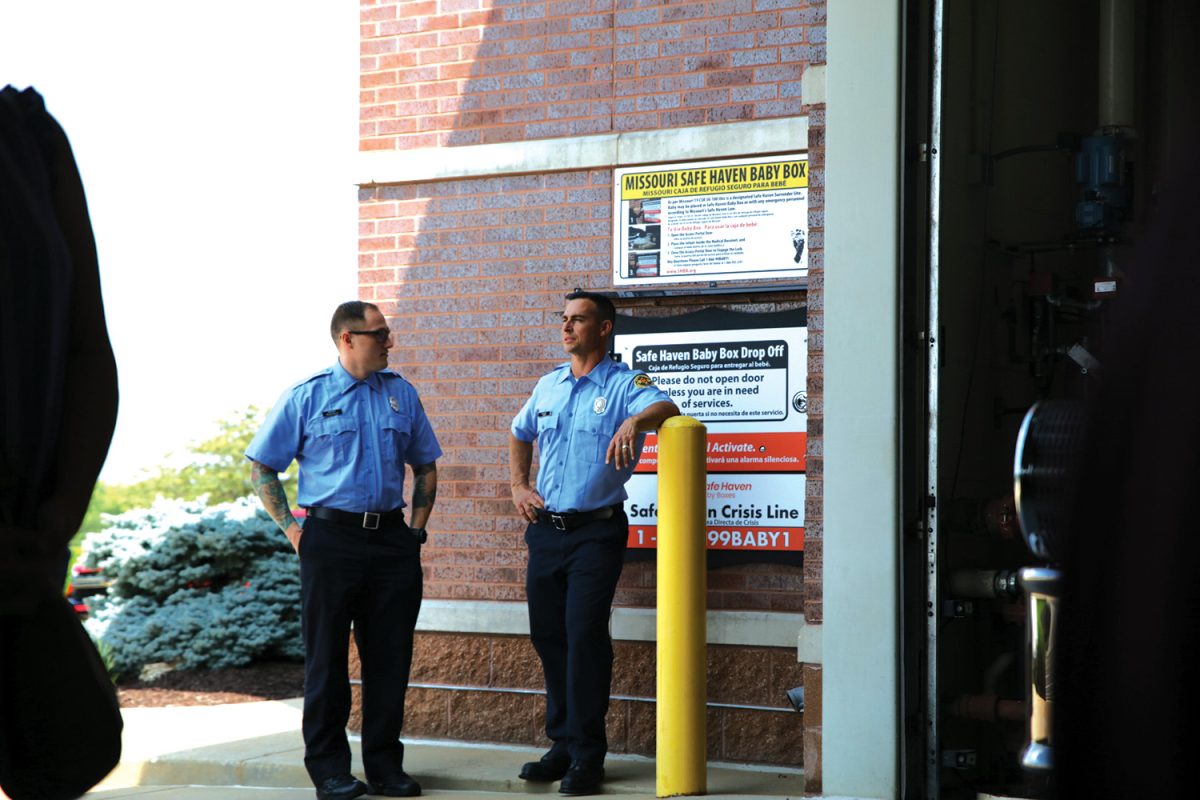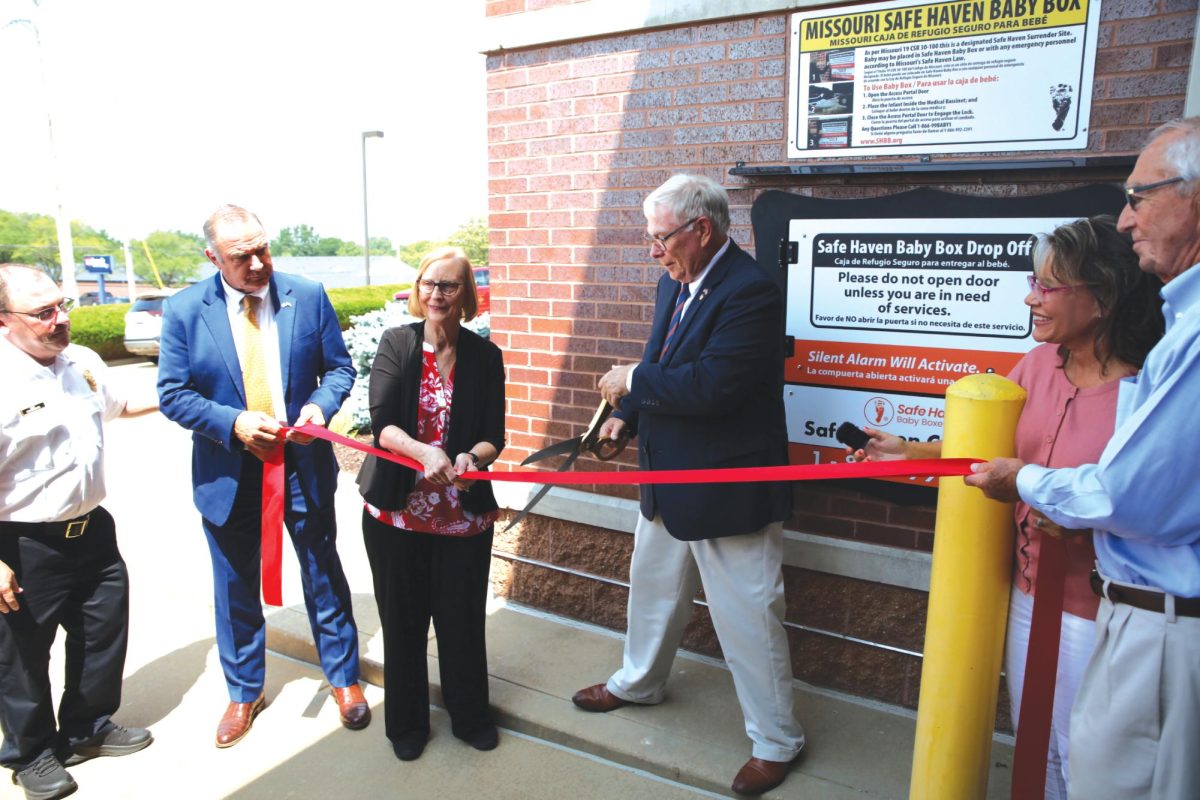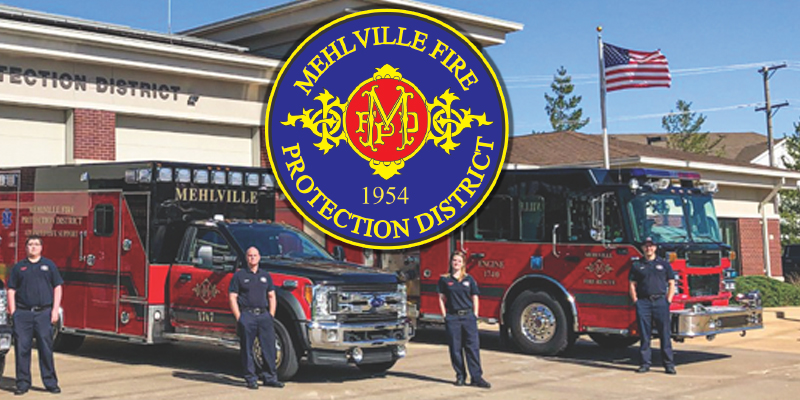A Mehlville School District ballot measure will face opposition from an organized committee perhaps for the first time ever.
A committee called No Accountability, No on A has been formed by Oakville residents Aaron Hilmer and Jim Stonebraker to oppose the Mehlville School District’s Proposition A, a 97-cent tax-rate increase, that voters will consider Tuesday, Feb. 7.
Hilmer and Stonebraker announced the formation of the committee last week during the final meeting of the Citizens to Protect Our Investment, the campaign committee chaired by Dan Fowler that spearheaded the passage of the school district’s Proposition P in November 2000.
At the Jan. 4 meeting, Fowler made a motion to dissolve the Citizens to Protect Our Investment and forward roughly $3,300 remaining from the Proposition P campaign to Citizens Protecting Our Investments, a committee promoting the passage of Proposition A.
But Hilmer, chairman of the Mehlville Fire Protection District Board of Directors, and Stonebraker, a former member of the Lemay Fire Protection District Board of Directors, asked that the money be divided equally between Citizens Protecting Our Investments, the committee co-chaired by Andrea Keller and Debra Selinger that is promoting Proposition A, and their committee, No Ac-countability, No on A.
Fowler’s motion, however, was approved in a show of hands at the meeting, which drew about 30 people.
Before the vote was taken, Citizens to Protect Our Investment Treasurer Gloria Hartman reported the committee had raised $73,735.58 and spent $70,363.96 with $3,371.62 remaining.
During a period for public comment, Hilmer said, “… I am here to speak about Feb. 7, but I am not here to speak about the 30 percent tax increase known as Proposition A. I feel that on Proposition A we will not only be voting on Prop A, but also on the state of district finances and how residents view the handling and the accountability that came with Proposition P.”
Voters in November 2000 approved Proposition P, a nearly $68.4 million bond issue funded by a 49-cent tax-rate increase. However, a final budget revision approved last month raises the Proposition P budget to $89,137,440 — a roughly 30.3 percent increase — more than $20.7 million over the nearly $68.4 million building improvement program envisioned in 2000.
“… I don’t think anyone in this room would argue that there has been more written about, debated and talked about Prop P than perhaps any issue in the recent history of south county,” Hilmer said. “That’s why I’m here tonight, Mr. Fowler. You are a steward of roughly $3,300 in money that was raised from businesses and residents to help ensure the passage of a tax increase that would fuel a $68.4 million districtwide building improvement. Though due to the size and the scope of what Prop P has morphed into today, it is unrecognizable from what it looked like in circa November of 2000.
“I’m asking that you would divide the funds equally between Citizens Protecting Our Investments and a group that I am treasurer of entitled No Accountability, No on A. That way the public can see both sides of the coin. But just don’t take my opinion on it. Let’s look at the survey for which our school district spent nearly $15,000 on. The Chilenski Group told us that only 47 percent of residents looked favorably on a 50-cent tax increase. We’re talking about nearly a dollar now,” he said.
“And also I think it lends credence to the fact that the community is split on this as well as this room may be. This will be the first chance for residents to voice their opinion on Prop P in nearly five and a half years. It will be a referendum of sorts, I guess you could call it,” he continued. “And while we haven’t been able to hear much from residents over the past few years except perhaps the occasional letter to the editor, we’ve heard plenty from the Board of Education. One month — or two months before Prop P was discovered to be $20 million over budget, a board member told us she had the ability to deliver the project to taxpayers as expected. One month before Prop P was discovered to be 30 percent over budget, we were told — another told us that Prop P was on time and on budget.
“And just this summer, a third board member said that in reference to Prop P that we did it right this time. On Feb. 7, if the public can be armed with both sides of the story, they will then be able to deliver a verdict and then the board and the administration will know where the public wants them to take the district …,” Hilmer said.
In his remarks, Stonebraker contended the Board of Education and district administrators broke the public’s trust by increasing the cost of Proposition P to more than $89.1 million.
“In the Mehlville School District, the construction and improvement of schools is a definite plus for the district. However, the lack of accountability concerning Proposition P funds has broken the trust of the voters who approved them. The current ballot initiative, Proposition A, is a perfect example of administrative doublespeak,” he said, noting the school district’s Web site includes a breakdown of how Proposition A revenue would be spent if approved by voters.
“However, the ballot language omits all of the specific disbursement amounts described by the district and only includes the categories for the expenditures. Perhaps this proposal was written with disappearing ink,” Stonebraker said. “The fact is, there are no specific legal constraints on how these funds shall be spent. The Board of Education can spend Prop A money in any way it pleases and would not be obligated to fund any of the line items as advertised. In other words, you could drive a large red 16-wheel tractor-trailer through the ballot language of Prop A.
“There is no accountability and no good reason for approving a blank check for a board and administration that has been less than forthcoming with the hard-working taxpayers who will be fleeced by a new orgy of exorbitant spending if Prop A passes,” Stonebraker said. “In closing, Mr. Chairman, I urge you to level the playing field by awarding half of the remaining funds of the Citizens to Protect Our Investment to our committee, No Accountability, No on Prop A, so we will have an equal opportunity to inform the voters of the Mehlville School District that there are many good reasons not to support Prop A. The Mehlville School District is spending hundreds of thousands of dollars of taxpayer money to promote the passage of Prop A and telling only one side of the story. That is not a fair use of our tax money. Chairman Fowler, allow us the opportunity to present the voters with an alternative position and let them decide on this ballot proposal based on a fair presentation of both sides of this important issue …”
Keller said, “… I don’t have anything prepared because I was led to believe that this was just going to be a simple meeting where a motion would be made to hand over the funds from Prop P to Prop A,” she said. “I want to also state up front that — and Gloria Hartman will attest to this — that when I first contacted her, I never asked for the money from the Prop P campaign and that is not why I am here tonight. Dan Fowler called for this meeting and made a motion to do that and that is why I’m here, OK?
“Secondly, I would like to ask Mr. Hilmer and Mr. Stonebraker if either one of you wrote letters to the legislators last year while they were writing the funding formula,” she said.
Hilmer replied, “I already gave my comments.”
Fowler interjected, ” … If you got questions, then when you’re done then they can answer …”
Keller said, “OK. Last year, I was the chairman of a grassroots organization in this district called Families for a Fair Formula. Our solution was not to go to the voters first for a tax levy, and I think if you sat down and talked with me — and Mr. Stonebraker has had conversations with me before in a personal setting about this — that I am not a tax-increase type person. And that is why I organized hundreds of parents in this district last year. Under Families for a Fair Formula, we lobbied Jeff City along with the Regional Growth Association and many other area superintendents and school districts in this county. We wrote letters. We went to Jeff City and we asked our legislators to provide fair and adequate funding for the school districts in this area.
“Did you know that over — close to $100 million is diverted out of St. Louis County every year and goes to the state to fund out-state schools and for the last 12 years our funds have been frozen at $771 per student — $771 per student, while other districts like Hancock Place, I think their children received as much as like $4,000 from the state. I don’t have the figures in front of me,” she continued.
“But I would like to say that I would like the taxpayers to take a look … We are the third from the bottom in per-pupil spending in St. Louis County — third from the bottom,” she said, adding that the salaries of Mehlville teachers and administrators are below the median for St. Louis County.
“And if this is a matter of mismanaging funds, then every school district in this county should be criticized for that because Lindbergh has gone before their voters. Parkway, Rockwood, Affton and Fox — every single one of them has gone for an operating increase,” she said. “And as far as Prop P — I said I wouldn’t talk to Prop P, but since there are reporters here, I want it to go on the record. Our school district did an audit of Prop P. The administration and the board accepted the recommendations of Prop P. They held public meetings for people in the community to come and to voice their concerns, and one person showed up, and that person came to talk and ask questions about Prop A,” Keller said.
“So it seems to me that the only people that are still carrying on about Prop P are certain individuals in this community of which you all are those people, and, you know, this wouldn’t make it in any other community,” she said. “And I’m in this for the children and I believe that the two people that spoke before me, neither one of them have children — neither one of them have children. I have five children that need to be educated in this district — five children. How many do you (have)? How many of you have sat in a classroom with your kids and volunteered and there’s 30 kids in the classroom?”
Keller later added, “I think it’s a shame that this has become political and I believe I was led here under false pretenses.”
In a telephone interview, Fowler took exception with Keller’s comment that she was “led here under false pretenses.”
“Andrea Keller and I had extensive conversations about what would take place at this meeting. She was very aware of what was going to transpire at this meeting,” he said. “In fact, 48 hours before the meeting, I emailed her the agenda — the very same agenda that was printed in the Call a week earlier.
“I made it very clear to her that there would be a period of open comments and I am not going to restrict people from saying what they want to say or their free speech. To say otherwise is disingenuous,” said Fowler, a former school board member who also was chairman of the Citizens’ Advisory Committee for Facilities.



























